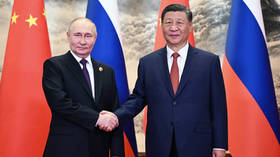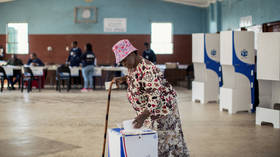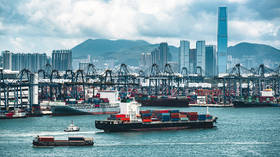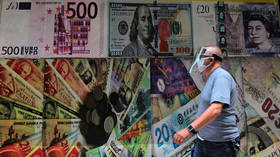US bans import of Chinese ‘genocide’ cotton
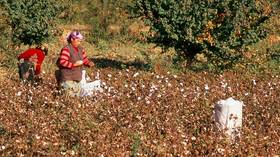
The US has announced a ban on cotton imports from 26 Chinese companies that source it from Xinjiang, citing allegations of forced labor and genocide of the mainly Muslim Uighur minority there.
Washington has long accused Beijing of persecuting the Uighurs, which China has denied as complete lies and fabrications.
“The Department of Homeland Security will not tolerate forced labor in our nation’s supply chains,” DHS Secretary Alejandro Mayorkas said on Thursday, announcing the addition of 26 Chinese companies to the sanctioned blacklist under the Uighur Forced Labor Prevention Act (UFLPA).
Thursday’s announcement is “the largest ever one-time expansion” of the UFLPA blacklist and represents the commitment to “promoting accountability for the ongoing genocide and crimes against humanity against Uighurs and other religious and ethnic minority groups” in Xinjiang, according to the DHS.
Five of the companies source cotton from Xinjiang, while 21 source and sell cotton on the wholesale market. The US has had a ban on Xinjiang-sourced cotton since 2021, when the UFLPA went into effect.
The law “is just an instrument of a few US politicians to disrupt stability in the Xinjiang province and contain China’s development,” a spokesperson for the Chinese Embassy in Washington told Reuters.
Congressman Chris Smith and Senator Jeff Merkley – the New Jersey Republican and the Oregon Democrat who chair the Congressional-Executive Commission on China – welcomed the DHS announcement, but called the current list “only a fraction of the businesses complicit in forced labor.”
Merkley and Smith have demanded the DHS blacklist any company that makes goods for the US market from materials sourced in Xinjiang, including rayon, PVC and aluminum, among other things.
China has repeatedly denied US claims that it has established labor camps for Uighurs and other Muslim minorities in the province. Allegations of genocide in Xinjiang are “ridiculously absurd” and “a complete lie,” the current foreign minister, Wang Yi, said back in 2021. Beijing has also pointed out that the Uighur population has doubled from 5.55 million to more than 12 million in the past 40 years.
